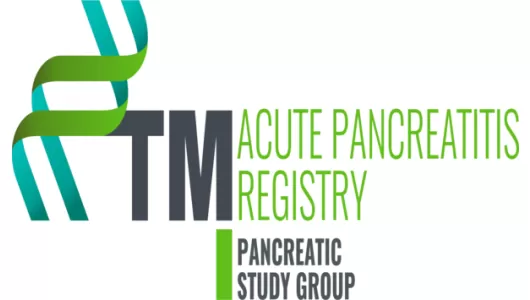
AP Registry
Acute pancreatitis (AP) is one of the most common gastrointestinal diseases requiring urgent hospitalization worldwide, which has significant morbidity and mortality. The annual incidence of AP varies from country to country, with an average of approximately 13 to 80 cases per 100,000 population. The incidence of the disease has been steadily increasing over the last decades.
AP can lead to life-threatening complications. According to the 2012 Atlanta classification, the disease has three degrees of severity. While mild AP has no local and systemic complications and the mortality rate is negligible, complications appear in moderate and severe AP. In severe AP, mortality reaches 15-25%. There are multiple predictive scoring systems but all have their shortcomings so that current guidelines propose a three-dimensional approach to predict disease severity.
Adequate therapy saves life. Although much basic research and many clinical studies were conducted to understand the disease, we do not have specific therapy that can effectively improve disease outcome yet.
Late complications often develop. Recurrent AP develops in 20% and chronic pancreatitis in 7-12% of cases. Little information is available on the follow-up of these patients. Common late complications are the disorders of carbohydrate metabolism (pancreatogenic diabetes) and, less frequently, exocrine pancreas insufficiency.
In 2012, the Hungarian Pancreas Study Group launched registries for pancreatic diseases to advance research and patient care. In the AP registry, prospective, international, multicentric data collection is performed. The registry has several roles:
- better understanding the disease course along with different risk and predictive factors,
- monitoring the diagnostic and therapeutic practices,
- providing a better insight into the development of late complications,
- providing the basis for clinical trials (EASY, GOULASH, PREPAST and EMILY are already running), and
- collecting biological samples stored in biobank, which can be used for genetic and biochemical testing.
Uploading centres
Bács-Kiskun Megyei Kórház
Bajcsy-Zsilinszky Kórház
Békés Megyei Központi Kórház Dr. Réthy Pál Kórház-2. Gasztroenterológiai Osztály
Békés Megyei Pándy Kálmán Kórháza III.sz. Bel/Gasztroenterológia
Betegápoló Irgalmasrend Budai Irgalmasrendi Kórház
Bethesda Gyermekkórház
Borsod-Abaúj-Zemplén Megyei Kórház és Egyetemi Oktató Kórház
CSMEK Hódmezővásárhely
Csm-i Dr. Bugyi István Kórház
DEKK Belgyógyászati Intézet Gasztroenterológia
Fejér Megyei Szent György Kórház
Heim Pál Gyermekkórház
Kiskunhalasi Semmelweis Kórház
Markusovszky Egyetemi Oktatókórház, II.Belgyógyászat - Gasztroenterologiai és Belgyógyászati Osztály
MH Honvédkórház
PTE Klinikai Központ I sz. Belgyógyászati Klinika
Réthy Pál Kórház-Rendelőintézet
SE I. Belgyógyászati Klinika
SE II. sz. Belgyógyászati Klinika
SE I. sz. Gyermekgyógyászati Klinika
Semmelweis Egyetem Pankreász Betegségek Kiválósági Központja
Szabolcs Szatmár Bereg Megyei Kórházak Egyetemi Oktatókórház Jósa András Oktatókórháza
SZTE ÁOK I. sz. Belgyógyászati Klinika
SZTE Gyermekgyógyászati Klinika
Tolna Megyei Balassa János Kórház
Uzsoki Utcai Kórház
Zala Megyei Kórház